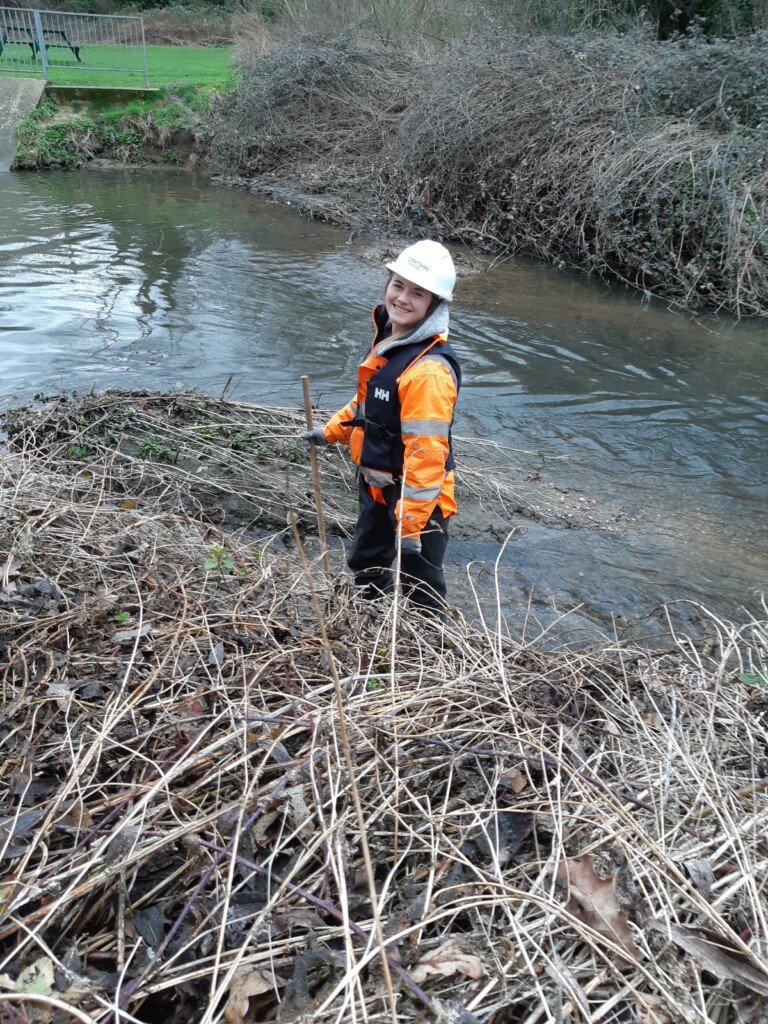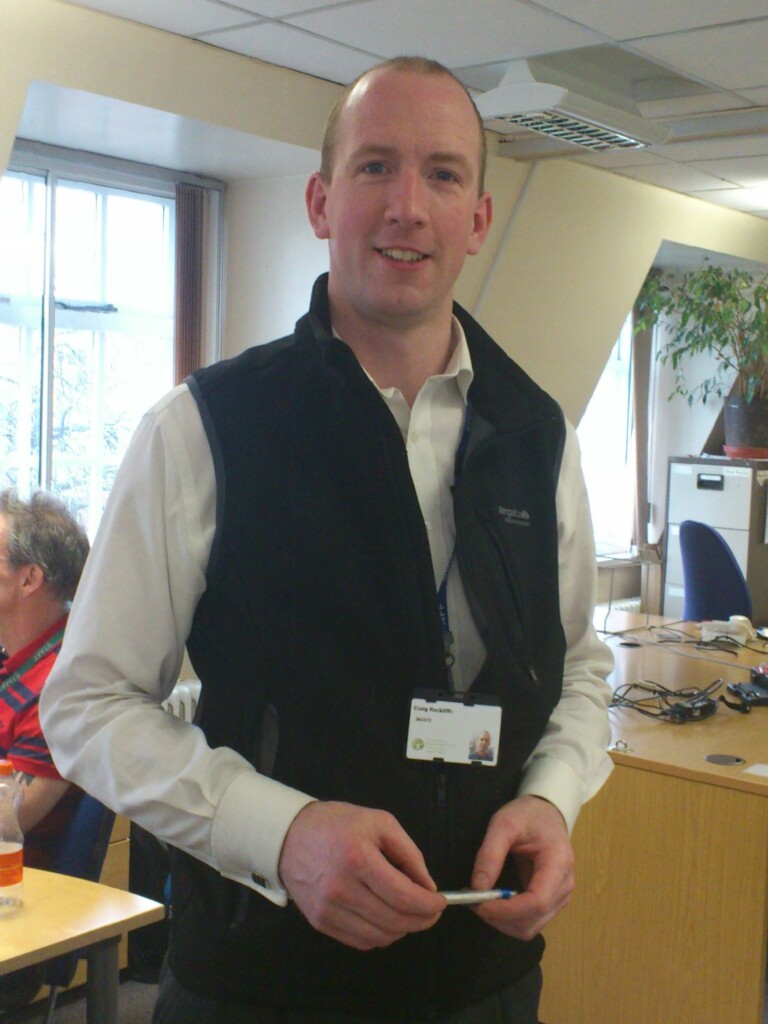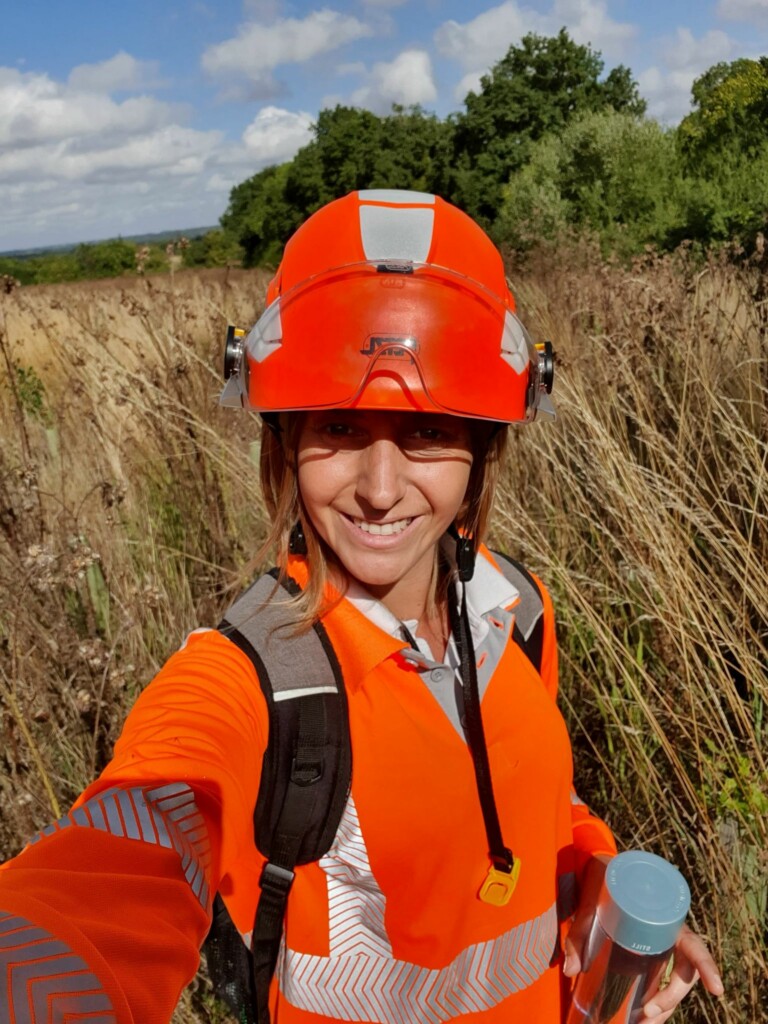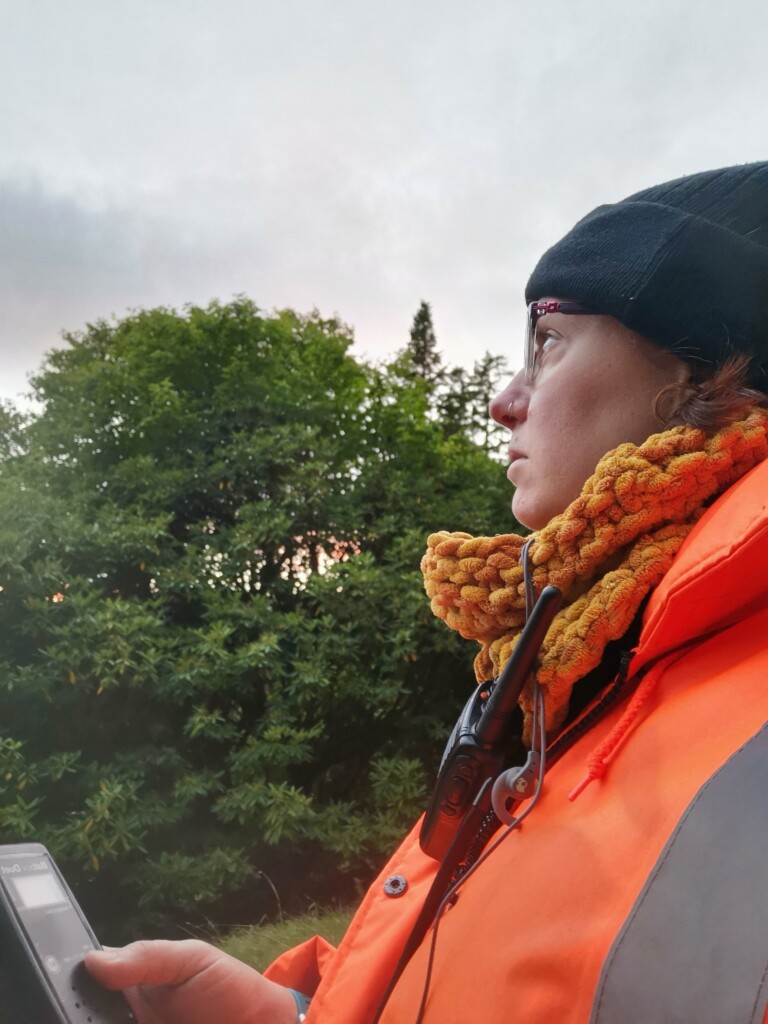Maxine Hendy

What employment sector do you work in?
Private/ Consultancy Sector
How long have you had a green job for nature?
About 2 years
Salary Range
£30,000 – £40,000
Please describe the work that you do.
I help a development take place in the most biodiversity-friendly manner possible. I visit the site before any development can happen. Once on site, I thoroughly check for plants and animals of interest that might be harmed by the works planned and report all this back to the client and the local planning authority. They can then make a decision about how harmful this development might be. I then follow the development once it starts, jumping in to help if there might be a bird’s nest, badger hole, etc.
What do you most like about your job? Any dislikes?
I love the range of people that I get to work with. I don’t always feel comfortable in a formal office environment so it’s nice to work on a building site, meet a local parish group, or visit a quarry from inside a bulldozer. It keeps the job fresh and interesting. I like being surrounded by like-minded people — the conversations that we have around work really help me learn and develop. Every corner of each site is different, and every ecologist will come to a different conclusion, so there’s a lot of research and debate which has undoubtedly made me better at my job.
There is sometimes the moral quandary that I think most private sector consultants come across when asked to help develop a site that they would rather leave for nature. However, I think that advances in planning requirements, as well as choosing a consultancy that works for you, really helps, and in my latest role, I’ve enthusiastically helped plan every development with a huge net gain for biodiversity.
What inspired you into this career?
Meeting ecologists has been the most inspirational factor by far. I turned up to my local bat group one day so disenfranchised with the sector, unhappy in my toxic workplace, and left with several job offers and the stories of bat rescues and trees breaking that got me excited in the sector again! One month later I was sitting in my home office with a large pay rise and a structured training and progression plan designed for me.
Have you faced any challenges in progressing your career so far?
I reached a dead end as a lead ecologist only one year into my career. The company was looking for inexperienced ecologists to sign off on what a more experienced ecologist wouldn’t, and the more I learned there, the more I realised that it wasn’t something I was comfortable with. However, it is important to choose a company that matches your work style. There is a lot of demand out there, so it is worth taking a little bit of time to look into a company before deciding.
What education/training did you have?
I studied biology at undergraduate level since I thought that maybe I would want to be a doctor. During my first year, I was placed in modules with marine biology, and that was it in terms of ever working with humans again.
I took a year abroad and studied ornithology, coastal ecology and geology, and even taxidermy, and when I returned I applied for a master’s in environmental management. I didn’t know the word ecology just yet, but I knew I wanted to do something that made future developments more sustainable.
In my fifth straight year at university I finally realised I had to pick a job. I came across an ecology module and was so convinced of the importance of this that I camera-trapped the back lawn of my student accommodation to study the behaviour of the muntjacs, foxes, and squirrels when I wasn’t in. I eventually spun this into a dissertation, graduated with my master’s degree, and fell into a series of ecology roles. Eventually, I landed comfortably in a large international corporation, who have the resources and the finances to work with incredible technology, well-educated and experienced ecologists, and training opportunities.
What advice would you give to someone coming into the profession?
The most important thing that can be done is to go to events with ecologists and honestly ask them about their jobs. Ecologists are passionate about their work to a fault and are generally really happy to speak to you about what they do. If you like the sound of it, there are training courses out there that will get you ready for work in as little as 6 weeks. It’s then just a case of finding the right consultancy for you!
—
Tags: England, Private sector, Ecologist, Ecological consultant
Date profile submitted: 19/09/2023
Related Job Profiles
Adelle Pilfold

Craig Rockliff

Charlie Ward

Kay Paul

